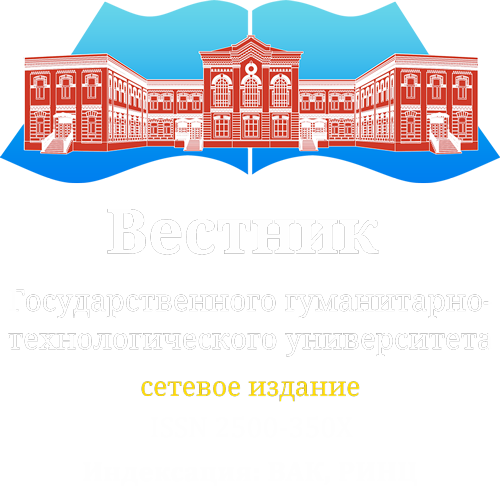Вестник Государственного гуманитарно-технологического университета. 2023. № 4. С. 111–116. ISSN 2500-350X (online)
Vestnik of State University of Humanities and Technology. 2023. no 4. P. 111–116. ISSN 2500-350X (online)
Научная статья
УДК [37.016:811.161.1]:81
ЮМОР НА ЗАНЯТИЯХ РКИ В КИТАЙСКОЙ АУДИТОРИИ
Марина Валерьевна Силаева
Университет МГУ-ППИ в Шэньчжэне, Китай, sofyaberyozkina@yandex.ru
Аннотация. Современная ситуация на мировой арене подсказывает поиск новых партнёрских отношений, основанных на знании языковой культуры народов. Этим обусловлена актуальность статьи. Необходимость внедрения в программу обучения РКИ понятия о ситуативном юморе ставит перед преподавателями высшей школы ряд задач, главной из которых является определение конкретного пути, по которому следует идти при работе с иностранной аудиторией. В статье предлагается один из возможных вариантов решения проблемы. Автор делится опытом обращения к ситуативному юмору, приёмам комического, литературоведческому анализу художественного произведения на занятиях с китайскими студентами-магистрантами. Ситуативный юмор находит отражение в русских народных сказах (в частности, в сказке «Лиса и волк»), в диалогах, моделирующих определённую речевую задачу и в художественных произведениях (рассказ Тэффи «Точки зрения»). В статье предлагается анализ текстов и проведённой практической работы. Предлагается несколько линий соотнесения русского и китайского юмора. Научная новизна исследования состоит в комплексном подходе к пониманию юмора и возможностям его применения. Обращение к философской природе юмора позволило наблюдать связь между ситуативным юмором, иронией и особенностями ментального мышления. Понимание абсурда как явления несовпадения реальных и ожидаемых картин действительности с последующим переосмыслением устройства мира и своего места в нём оказывается близко людям принципиально разных культур: российской, европейской, китайской. Эти пункты сближения должны способствовать установлению гармоничных отношений между людьми и укреплению связей между странами.
Ключевые слова: юмор, ирония, остроумие, русский язык как иностранный, китайские студенты, языковая среда, приёмы комического
Для цитирования: Силаева М.В. Юмор на занятиях РКИ в китайской аудитории // Вестник Государственного гуманитарно-технологического университета. 2023. № 4. С. 111-116.
Original article
HUMOR IN RUSSIAN AS A FOREIGN LANGUAGE CLASSES IN THE CHINESE AUDIENCE
Marina V. Silaeva
Shenzhen MSU-BIT University, China, sofyaberyozkina@yandex.ru
Abstract. The current situation on the world stage suggests the search for new partnerships based on knowledge of the linguistic culture of peoples, the peculiarities of perception and reflection of reality. This is due to the relevance of the article. The need to introduce the concept of situational humor into the RCT training program poses a number of tasks for higher school teachers, the main of which is to determine the specific path that should be followed when working with a foreign audience. The article suggests one of the possible solutions to the problem. The author shares his experience of using situational humor, comic techniques, literary analysis of a work of art in classes with Chinese undergraduates. Situational humor is reflected in Russian folk tales (in particular, in the fairy tale «The Fox and the Wolf»), in dialogues modeling a certain speech task and in works of fiction (Taffy’s story «Points of View»). The article offers both an analysis of texts and an analysis of the practical work carried out. Several lines of correlation of Russian and Chinese humor have been drawn. The scientific novelty of the research consists in a comprehensive approach to the understanding of humor and the possibilities of its application. The appeal to the philosophical nature of humor allowed us to observe the connection between situational humor, irony and the peculiarities of mental thinking. The understanding of the absurd as a phenomenon of the discrepancy between real and expected pictures of reality, followed by a rethinking of the structure of the world and their place in it, turns out to be close to people of fundamentally different cultures: Russian, European and Chinese. These points of convergence should contribute to the establishment of harmonious relations between people and strengthen ties between countries.
Keywords: humor, irony, wit, Russian as a foreign language, Chinese students, language environment, comic techniques
For citation: Silaeva M.V. Humor in russian as a foreign language classes in the chinese audience // Vestnik of State University of Humanities and Technology. 2023. no 4. P. 111–116.
Информация об авторе
М.В. Силаева – кандидат филологических наук, доцент Центра русского языка МГУ-ППИ в Шэньчжэне.
Information about the author
M.V. Silaeva – Ph.D. of Philology, Associate Professor of the Russian Language Center of MSU-BIT University.
Статья поступила в редакцию 29.11.2023; одобрена после рецензирования 10.12.2023; принята к публикации 20.12.2023.
The article was submitted 29.11.2023; approved after reviewing 10.12.2023; accepted for publication 20.12.2023.
